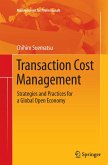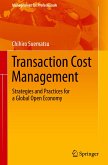How did Capital One and Uber implement nearly identical business models, focusing on customers that are most profitable to serve? Why are Google and Amazon so valuable to us? Why are Google, Apple, Microsoft, and Amazon so difficult for competitors to displace? And why can Google charge almost anything it wants for keywords, since no form of competition will force prices down? The information-based business models of these companies, and many more, are exploiting the patterns described in this book.
This book instills pattern-based thinking that will prepare all readers for greater success in our rapidly changing world. It will help executives, regulators, investors, and concerned citizens better navigate their way through the digital transformation of everything .
Professor Clemons presents six patterns for staying competitive and achieving profitable business models. The author's reframe-recognize-respond framework teaches readers how to transform unfamiliar problems into familiar patterns, how to determine which patterns to apply in different situations, and how to respond most effectively.
Information changes everything. This book is a guide to power and profit from understanding changes in the age of digital transformation.
This book instills pattern-based thinking that will prepare all readers for greater success in our rapidly changing world. It will help executives, regulators, investors, and concerned citizens better navigate their way through the digital transformation of everything .
Professor Clemons presents six patterns for staying competitive and achieving profitable business models. The author's reframe-recognize-respond framework teaches readers how to transform unfamiliar problems into familiar patterns, how to determine which patterns to apply in different situations, and how to respond most effectively.
Information changes everything. This book is a guide to power and profit from understanding changes in the age of digital transformation.








